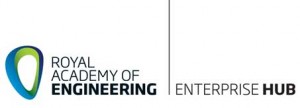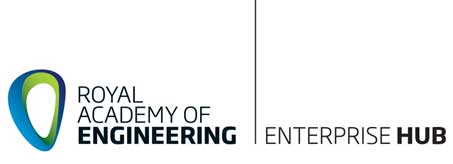To address these topical themes, I am truly proud and feel honoured to be part of BU’s visionary impactful research contributions and I have personally actioned:1A) an abstract poster presentation for the BU Conference [27 November] in person attendance all warmly welcomed, BU Talbot Campus, Fusion FG06 Posters on show viewing and Share theatre (oral presentations), 9-4pm and incorporated into it: 1B) my own very original topical preprint article [12 November] ii) attended (after last year see my RDS Blog ‘BU live with USA, Germany and Kyiv’) the 3rd International IZA/OECD online workshop [21 November] of top international themes alongside 101 zoom participants from USA, UK, Germany, Italy, Spain, France and more.
1A) poster abstract presentation (BU Conference and Researchgate link)
Poster and Abstract – Fiona Vidler
Abstract
Financial Constraints and Bribery Impact upon SME Firm Productivity in Economic Crisis and Conflict
Do economic destabilisation factors link to conflict even war? Only now in the explosive mid2020s are finance economists breaking the silence, raising this critical question. The author proposed early 2022, a ‘turning point’ notion of 2019 – thirty years after the Berlin Wall fell, seventy years after NATO formed; pre-covid 2020; before ‘Zeitenwende’ 240222 – seeking missing descriptive and empirical regression evidence beyond speculation for predictive indicators: financial constraint and bribery incidence within financialisation, competitivity and corruption. Findings demonstrate significant negative heterogenous effects across 27 Eastern European countries upon SME firm productivity outcomes with co-operative alliances adding business transformation value.
1B) Preprint Abstract and Article Download
Preprint Abstract and Article Download – Fiona Vidler
Vidler, Fiona,
Keynes World War, Prophecies And Productivity Growth In Economic Crisis -A Critical Review (November 12, 2024).. A review style paper that links current relevant themes in a novel readable socio-economic scholarly critique relating to a resurgent interest in Keynes’ original work and finishing with elements of the author’s own original research – so debating Keynes’ own predictive words even prophecies with words from a hundred years ago in 1919 to a 2019 proposed ‘turning point,’ leading into consequences for the current 2020s and future. Available at Elsevier SSRN:
https://ssrn.com/abstract=5018719 or http://dx.doi.org/10.2139/ssrn.5018719
Also available on research gate with poster and abstract files (note preprint article first available 13 November 2024 although categorised 2024 on Researchgate itself). Also, already additionally early listings (featured) so far early days in other more general ejournals- European Economics: Macroeconomics & Monetary Economics eJournal and Development Economics: Microeconomic Issues in Developing Economies eJournal with interest from The Journal of Research Development.
ii) 3rd OECD/IZA Workshop
3rd OECD/IZA International Workshop
Link to IZA/OECD program with group photo shot (BU top right corner of image), where it was a great opportunity to this time, listen participate seek first to understand and find out what the IMF (International Monetary Fund), OECD, ILO United Nations, IZA (Institute of Labour Economics, HQ Germany – with its links to EACES) latest news is and more – where researchers linked face to face with policy makers on the 21 November.
Furthermore, to ask one’s own question related to productivity and received an answer too. A lateral one as hot topics were related to productivity intrinsic factors ‘within firms’; a consideration different but relevant to my own theme considering 10,000 SME firms as entities and their extrinsic productivity outcomes in measures of output per worker in SME firms. Intriguingly, 2019 was also a turning point down turn found by IMF researchers in Europe beyond relative prosperity of 2015-2018.
On the theme of publishing research that makes a difference and gaining inspiration to keep writing further articles (how does one do it one may ask): A leading publications ranked world class esteemed BU Professor (Marketing Strategy Innovation and Tourism), Dimitrios Buhalis, far greater than myself, recently circulated for reflection by colleagues: 'the attributes of distinguished scholars' (McKercher, 2024) where consensus was that inquisitiveness, insights, passion were top criteria, followed by other criteria including: connections, taking a risk with a joined up 'whom, what, how, why' strategy for truly original research with relevant impactful publications that make a difference or reach the target audiences – linking themes of topical current real interest in an intellectual scholarly manner often with practitioner or policy maker relevance, on the leading edge, meeting needs, connections, collaborations, often interdisciplinary considerations to expand thinking – inspiring and enabling memorable research publications as opposed to churning or common mediocre scholarly research which is common.
Making a (real) difference in the world with recognition in many fields is one of BU's themes and forte in the 2020s. I personally find these criteria inspiring for researchers publishing, would also add return on investment or with relevance or benefits with solutions towards solving issues in the economy/economies (from a finance economic perspective of the world is a reality of how we live today, where sustainability the flipside of economic destabilisation is the golden elixir matrix required). So gratitude and thank you so much for reading as always.
So Let us All be NICE = Noteworthy Inspiring Connecting Energising for yourself, others, and the world!
Fiona ‘Stewart’ Vidler MBA MSc MLIBF
Former MIPR (media) and financial advisor, Decision-Making Business Strategy (Corporate and SME Director roles) and Financial Times Business Winner
Corruption and Financial Constraints Impacts upon SME Firm Productivity – European Transition Economies in Crisis (Finance Economics – Advanced Researcher and British Author)
Bournemouth University Business School (BUBS) – Catalyst Growth Fusion 2022-26
MSc Green Economy – Bournemouth University, UK, 2021-2022
MBA Finance Macroeconomics (One of best dissertations 2020 – joint Oxford Magna Carta/New Bucks. Universities)
PLUS Level 7 – Accounting, Auditing, Strategic Financial Management and Investment Strategies
Driver Award – Highest Achiever (Faculty) Cognitive Psychology (RHUL,UK)
Financial Times Business Award Winner
– ‘ROI + media publishing success made us stand out win’
Previously Senior Researcher (over decade experience), RHUL, Defra (as prior MAFF), DSTL (as prior MOD), International Crisis Management Researcher (Burson-Marsteller A-team) and Director Education/ Marketing/ Research /Media/Conference/Round-table programs for professors leading lights networks creation and bidding team budgets writing programs £10K to £3M.




![InnovateUK_LogoA_Interim_RGBx320govuk[1]](http://blogs.bournemouth.ac.uk/research/files/2014/12/InnovateUK_LogoA_Interim_RGBx320govuk11-300x90.jpg)






















 Beyond Academia: Exploring Career Options for Early Career Researchers – Online Workshop
Beyond Academia: Exploring Career Options for Early Career Researchers – Online Workshop UKCGE Recognised Research Supervision Programme: Deadline Approaching
UKCGE Recognised Research Supervision Programme: Deadline Approaching SPROUT: From Sustainable Research to Sustainable Research Lives
SPROUT: From Sustainable Research to Sustainable Research Lives BRIAN upgrade and new look
BRIAN upgrade and new look Seeing the fruits of your labour in Bangladesh
Seeing the fruits of your labour in Bangladesh ECR Funding Open Call: Research Culture & Community Grant – Apply now
ECR Funding Open Call: Research Culture & Community Grant – Apply now ECR Funding Open Call: Research Culture & Community Grant – Application Deadline Friday 12 December
ECR Funding Open Call: Research Culture & Community Grant – Application Deadline Friday 12 December MSCA Postdoctoral Fellowships 2025 Call
MSCA Postdoctoral Fellowships 2025 Call ERC Advanced Grant 2025 Webinar
ERC Advanced Grant 2025 Webinar Update on UKRO services
Update on UKRO services European research project exploring use of ‘virtual twins’ to better manage metabolic associated fatty liver disease
European research project exploring use of ‘virtual twins’ to better manage metabolic associated fatty liver disease